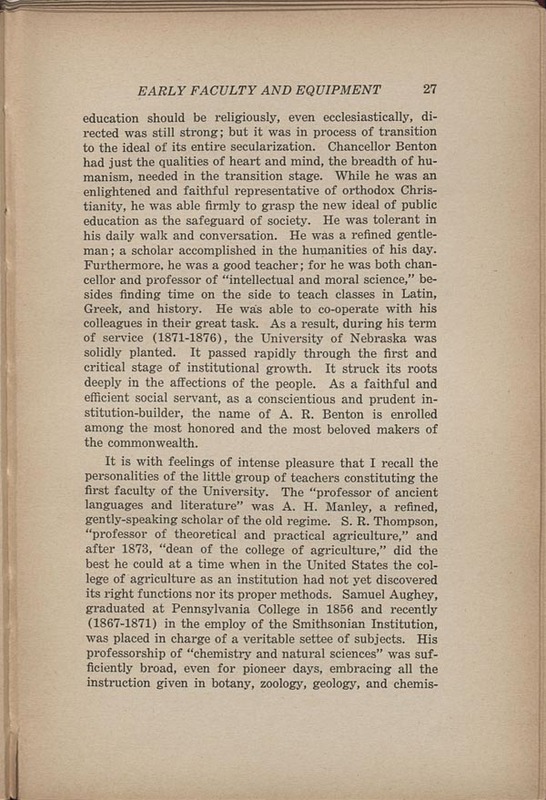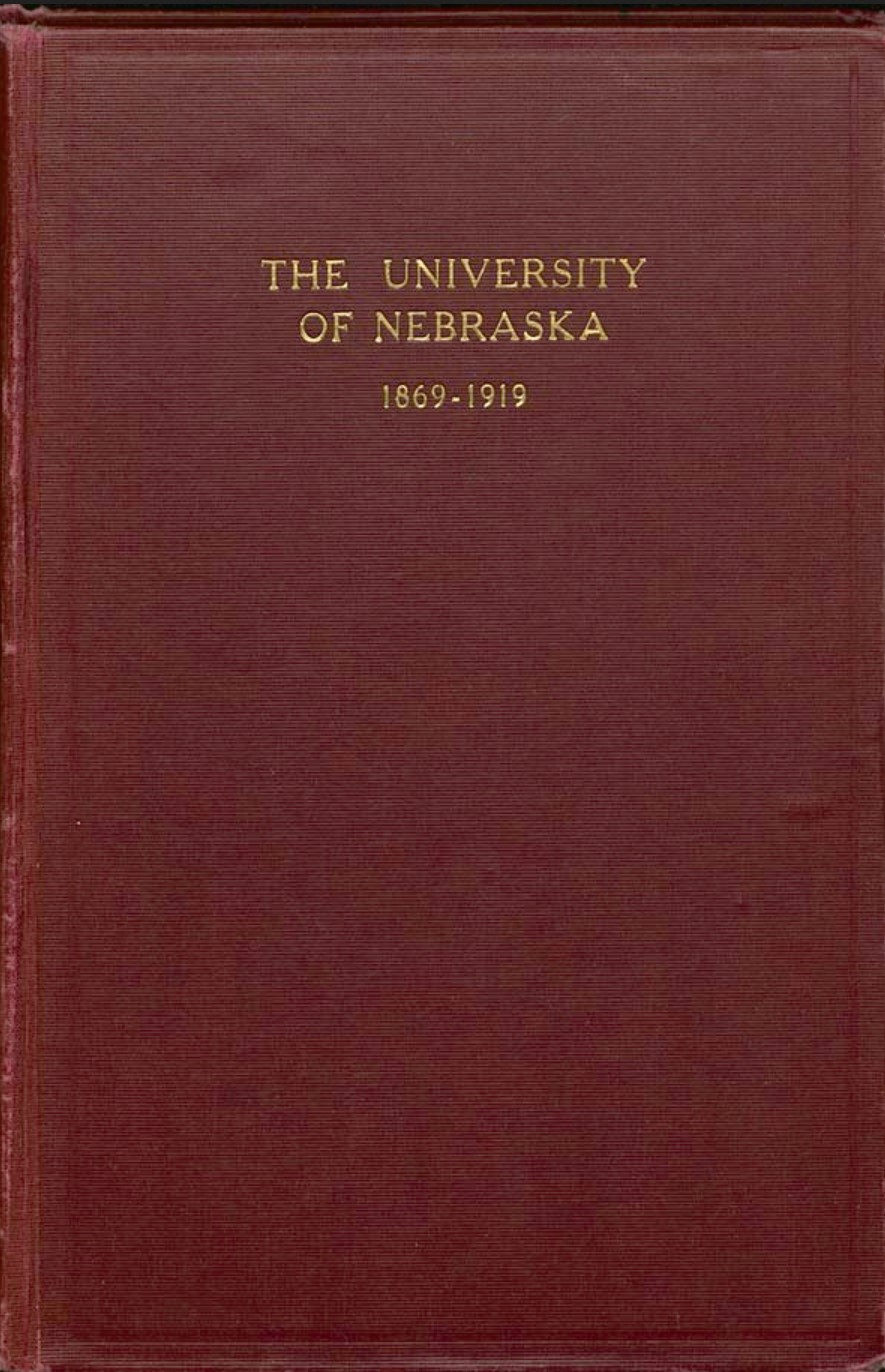031
Item
-
Title
-
031
-
Description
-
Semi-Centennial Anniversary Book: The University of Nebraska, 1869-1919
-
Transcription
-
education should be religiously, even ecclesiastically, directed was still strong; but it was in process of transition to the ideal of its entire secularization. Chancellor Benton had just the qualities of heart and mind, the breadth of humanism, needed in the transition stage. While he was an enlightened and faithful representative of orthodox Christianity, he was able firmly to grasp the new ideal of public education as the safeguard of society. He was tolerant in his daily walk and conversation. He was a refined gentleman; a scholar accomplished in the humanities of his day. Furthermore, he was a good teacher; for he was both chancellor and professor of "intellectual and moral science," besides finding time on the side to teach classes in Latin, Greek, and history. He was able to co-operate with his colleagues in their great task. As a result, during his term of service (1871-1876), the University of Nebraska was solidly planted. It passed rapidly through the first and critical stage of institutional growth. It struck its roots deeply in the affections of the people. As a faithful and efficient social servant, as a conscientious and prudent institution-builder, the name of A. R. Benton is enrolled among the most honored and the most beloved makers of the commonwealth.
It is with feelings of intense pleasure that I recall the personalities of the little group of teachers constituting the first faculty of the University. The "professor of ancient languages and literature" was A. H. Manley, a refined, gently-speaking scholar of the old regime. S. R. Thompson, "professor of theoretical and practical agriculture," and after 1873, "dean of the college of agriculture," did the best he could at a time when in the United States the college of agriculture as an institution had not yet discovered its right functions nor its proper methods. Samuel Aughey, graduated at Pennsylvania College 1856 and recently (1867-1871) in the employ of the Smithsonian Institution, was placed in charge of a veritable settee of subjects. His professorship of "chemistry and natural sciences" was sufficiently broad, even for pioneer days, embracing all the instruction given in botany, zoology, geology, and chemis-
-
Rights
-
To inquire about usage, please contact Archives & Special Collections, University of Nebraska-Lincoln Libraries. These images are for educational use only. Not all images are available for publication.



